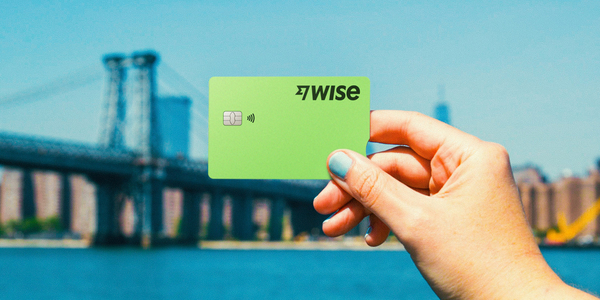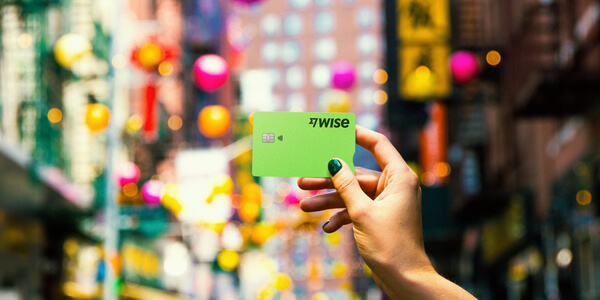Japan Etiquette for Tourists: 10 Tips for Your Trip
Planning a trip from the UK to Japan? Read our guide to 10 essential etiquette rules, from onsen tips to chopstick use and public transport.

Japan is home to some of the world's most interesting cultures and delicious food, making it one of the top favourite destinations for many British tourists. If you're tired of the cold and damp weather in England, hop on a plane and head to this vibrant country where you will encounter some of the world’s largest cities with endless activities day and night.
Shopping is also a must-do in Japan. Whether you're into anime, luxury brands, or traditional craftsmanship, you have come to the right place. Yet you may soon realise that your spending can quickly add up while exploring Japan’s shopping world. Happily, you can offset your holiday with a VAT refund. Japan is one of the few countries worldwide that offer tax-free shopping for tourists. This means that if you are eligible, you can claim Japan’s 10 percent VAT on many of their purchases. This article gets you one step closer to your affordable vacation in Japan by detailing your options for VAT refund as a UK resident.
In Japan, the Value Added Tax (VAT) is referred to as the Consumption Tax. The standard tax rate is 10% for most purchases. Certain products, such as food, drinks, and subscribed periodicals, are subject to a reduced tax rate of 8%.
If you are still unsure about the tax rate applied to your purchase, please refer to the table below for a quick check:1
| Tier | Rate | Applicable goods |
|---|---|---|
| Standard Tax Rate | 10% |
|
| Reduced Tax | 8% |
|
There are two ways to access tax-free shopping in Japan: you can either purchase tax-free items or claim your VAT refund through designated tax-free counters at shopping malls. More information will be provided later in this article.
The VAT refund scheme for tourists in Japan is often called the Tax-Free Shopping scheme. But It's also important to note that not every goods is eligible for this scheme. The goods which can be refunded are categorised as "general items" or "consumables". "General items" describes home accessories, appliances, bags, cameras, clothing, shoes, gifts, souvenirs, and watches. "Consumables" include cosmetics, foods, beverages, and confections.2 If your goods don't fit into these categories, you should check with the store seller or a tax expert to ensure you can still claim a VAT refund.
You also need to be able to meet these eligibilities to participate in this scheme:
If you have Japanese citizenship, you can also claim the VAT refund in Japan. The conditions are that you have been living abroad for more than 2 years and only visit Japan temporarily (less than 6 months).
The standard VAT rate in Japan is 10%, but you might not receive the whole amount back. There are two reasons for this:
Firstly, in most cases, you will need to pay handling fees to the designated tax-free counter .
Secondly, you might have to pay extra currency exchange fees if you choose to receive the refund through certain mobile payment platforms.
Frequently, you are required to visit the tax-refund counter at the store to claim back your VAT refund on the same date of purchase. So make sure you have plenty of spare time to claim back your VAT.
And, as mentioned above, there are more than one way to enjoy tax-free shopping in Japan. You can get your VAT refund right after you go shopping, which you can usually at the designated tax-free counter. Or you can find shops that offer tax-free shopping services! Just show your passport to the cashier, after checking your eligibility, the sales assistant might just exempt your VAT on the spot.
Before going over the procedures, let’s look at some required documents you need to have for VAT refund in Japan:
Before purchasing, inform the sales assistant you would like to be reimbursed for your VAT. They might need to look at your valid document to verify your eligibility, so make sure you bring all of your documents along with you when travelling. Some stores with a "Japan Tax-Free Shop" logo will reimburse your VAT immediately. Otherwise, the store may attach the purchase proof to your passport for a later refund at the tax counter.
Here is the moment you have been waiting for: Your VAT refund is ready for collection. Head to the designated tax counter with your receipts and necessary documents. The staff at the counter will facilitate the refund in cash, through credit card, or certain mobile platform payments.3
However, your VAT refund journey doesn’t just end here!
Before departure from Japan, you will have to show your goods when going through Customs. The process of physical paper has been digitalized so it is pretty straightforward in the airport. There are still certain things you should note before going to the airport:
If Customs cannot confirm your documents or your eligibility, you will have to pay the consumption tax immediately!4 So make sure you arrive at the airport early so you don’t need to rush through the process and miss anything.

There you have it: a comprehensive guide to tax-free shopping in Japan. After reading this, you should have a better grip on how it all works, and be ready to Indulge in your Retail 'Therapy' in Japan. There is one more thing that you might want to know:
If your card's denominated currency (e.g., GBP) differs from the local currency (e.g., JPY), you might encounter a conversion when receiving the VAT refund. As mentioned above, the card issuer determines the conversion rate, typically with a mark-up! So you will actually receive even less VAT refund!
However, here's one suggestion: you can receive your refund conversion fee-free with a Wise debit card if no currency conversion is involved. Or, even if a currency conversion arises, Wise only charges a small fee and converts at mid-market rates without markups. This card lets you hold 40+ currencies, including JPY, maximising your savings for your next adventure. Start your adventure with Wise today!
Please also be aware that tax rates and regulations may change over time. Always verify the information with official sources for the most accurate and up-to-date guidance.
Please see Terms of Use for your region or visit Wise Fees & Pricing for the most up to date pricing and fee information.
Sources used for this article:
Sources last checked on 11-Jun-2024.
*Please see terms of use and product availability for your region or visit Wise fees and pricing for the most up to date pricing and fee information.
This publication is provided for general information purposes and does not constitute legal, tax or other professional advice from Wise Payments Limited or its subsidiaries and its affiliates, and it is not intended as a substitute for obtaining advice from a financial advisor or any other professional.
We make no representations, warranties or guarantees, whether expressed or implied, that the content in the publication is accurate, complete or up to date.

Planning a trip from the UK to Japan? Read our guide to 10 essential etiquette rules, from onsen tips to chopstick use and public transport.

Wondering when the best time to visit Japan from the UK is? Learn about the weather, planning your trip and things to do in Japan.

Read our essential guide to ATMs in Japan, including how to find them, fees, exchange rates, withdrawal limits and more.

Want to stay connected while travelling in Japan? Our guide explores the best eSIMs for your trip, including factors to consider, how to activate and top tips.

Read our guide detailing how to withdraw money from Wise in Japan and what are the limits and fees included.

Read our essential guide on travel to Japan from the UK, featuring must-know travel advice on money, safety, visas, transport and more.